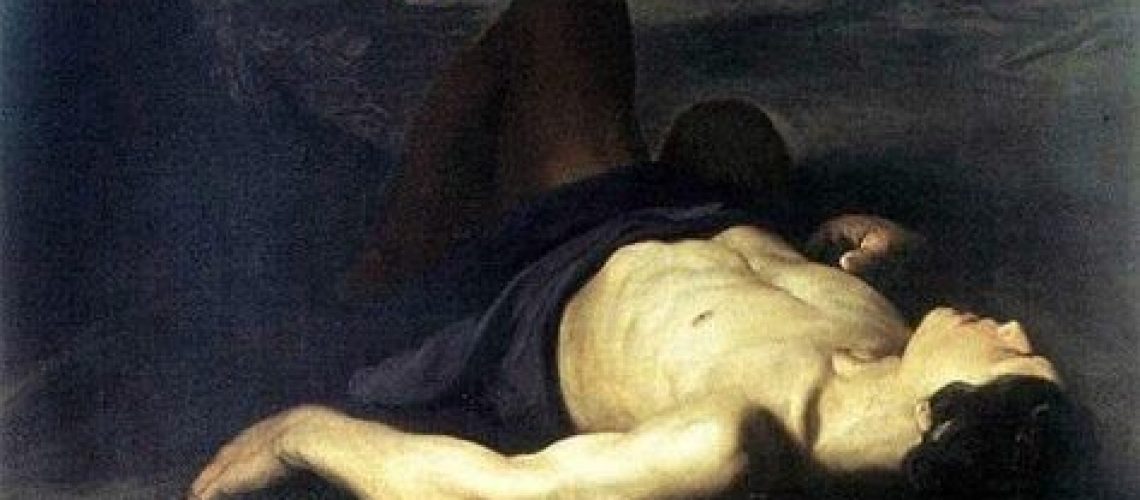A Tale of Shepherds and Farmers
Shortly after the fall, Cain and Abel, the first brothers in history, interact and one of them kills the other. Cain was a farmer and Abel was a shepherd. Each of them offered God from their goods: Cain offered fruits of the land while Abel offered lambs from his flock. God accepted Abel’s offering and rejected Cain’s. Overcome with jealousy, Cain kills Abel. Cain builds a city and protects himself within its walls. Seven generations after Cain, we see three grandchildren that are born to Lamech, another murderous descendant of Cain. The three grandchildren are: (1) Jabal, the father of those who dwell in tents and have livestock, (2) Jubal, the father of those who play the harp and flute, and (3) Tubal-Cain, an instructor of every craftsman in bronze and iron.
In many ways, this resembles subsequent empires built on the shedding of blood and corpses of victims. In each empire, there must be livestock for food, musical and theatrical instruments for the entertainment and distraction of the masses, and craftsman in bronze and iron for the manufacturing of war equipment used for protection and expansion. There is no way imperial expansion can take place apart from more bloodshed. Another important theme the story presents is the polarity that exists between farmers and shepherd. Farmers are associated with stationary presence in a single fertile land while shepherds are associated with constant wandering around. There can hardly be seen any respect between these parties throughout the Bible.
A vivid example of this is seen in the story of Joseph who saves Egypt and its surrounding regions from famine. Eventually, Joseph, the Hebrew, invites his brothers, the shepherds, to Egypt, an empire founded on agriculture around the Nile River. To the Israelites, Egyptians are pagans and thus, by default, unclean. To the Egyptians, Israelites are unclean because they are shepherds. Though they are initially welcomed because of the honour Joseph had in Egypt, they are isolated because of their occupational uncleanness and are later even enslaved to the Egyptians.
Christ: Our Reconciliation
Centuries later, Christ presents Himself as both a farmer and a shepherd simultaneously. He identifies Himself as the Good Shepherd who lays down His life for the sheep. He is also the farmer who plants the seeds of faith in the hearts of people. In Him, this eternal animosity is abolished. I believe this helps in understanding why Christ before His death, or rather His enthronement as a king on the Cross, would say, “my kingdom is not of this world.” He is the new Abel building a kingdom not on the death of others but rather His own.
His death puts an end to violence by accepting to be the victim and scapegoat of our violence. He commands His followers to “put down the sword,” that is to put away violence, and become “peacemakers.” As the ultimate peacemaker and Son of God, it is no surprise that He says to His followers, “Blessed are the peacemakers for they shall be called sons of God.”
Peacemakers? Christ and Us
How much do Christians resemble their Christ in terms of peacemaking? The best way to answer this question is to take a trip to the Holy Lands, visit the Sepulchre, and ask members of each denomination what they think of members of other denominations sharing the space with them. We, who are called to become peacemaker, have deteriorated that we need the mediation of peacemakers for us to love and respect one another. What is the solution for the Christian situation? Accept blame for your brothers’ mistakes and then maybe you will be ready to contemplate loving your enemies. Do you want Churches to be united? Go on your knees, pray for your enemies and for Church unity, and be reconciled to your brothers you had a fall out with.

